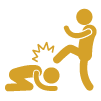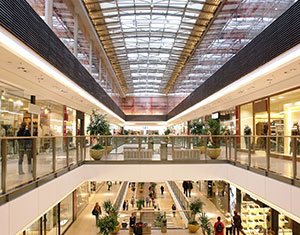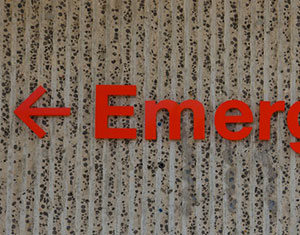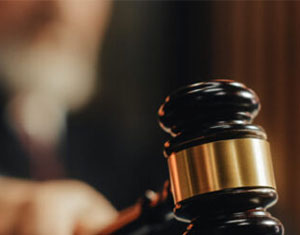A Compassionate Injury Attorney for Mall & Shopping Center Negligence in Atlanta
Table of Contents
- What Constitutes Mall & Shopping Center Negligent Security in Georgia?
- Proving Liability and Causation in a Mall or Shopping Center Negligent Security Case
- Compensation and Damages Recoverable in a Mall & Shopping Center Negligence Claim in Georgia
- Types of Mall & Shopping Center Negligent Security Cases We Handle
- Further Reading on Mall & Shopping Center Negligent Security
Shopping is a part of life for nearly everyone in Atlanta. Whether you frequent Phipps Plaza Mall, Lenox Mall, Perimeter Mall, Ponce City Market, Buford’s Mall of Georgia, or any of the other 38 malls in the Atlanta area, you expect that you’ll be safe when you visit.
Because of the sheer number of people that visit malls every day, the potential for injury is always present. If a shopper or employee is injured because of unsafe conditions like inadequate security or other negligence, the mall’s owner may be liable to the injured party for their losses and expenses.
If you or a loved one have been seriously injured due to negligent security at a shopping mall or shopping center in Georgia and would like to know what damages can be potentially recovered as part of your case, contact Apolinsky & Associates, LLC, for a free case evaluation.
What Constitutes Mall & Shopping Center Negligent Security in Georgia?
Like all property owners in the state of Georgia, Shopping Centers and Malls are required to keep their premises safe for everyone who visits, including malls and shopping centers (OCGA §51-3-1). Prevention is key to adequate security. A mall owner must make a reasonable effort to provide security that can prevent crimes that are foreseeable.
Property owners who see security as an afterthought leave their invitees open to harm. A risk assessment of the property and its surrounding areas can show an owner what they need to ensure adequate security for visitors and employees.
An owner who doesn’t treat security as a priority puts visitors at risk, and risks damage and loss to themselves as well as many of the mall’s businesses. Patrons who are injured can file a claim or a lawsuit against the owner to recover compensation for their injuries.
Further Reading: Understanding Foreseeability in Negligence & Premises Liability Cases
Proving Liability and Causation in a Mall or Shopping Center Negligent Security Case
Depending on the circumstances, there may be numerous defendants named in an injury lawsuit against a mall or shopping center. Some of those may include:
- The owner of the mall. Malls are often owned by wealthy investors and developers. Simon Property Group, the biggest mall owner in the country (owning several sites in Atlanta), is a real estate investment trust. Property owners have a responsibility to keep the property safe, but they may also hire property managers or depend on shop owners for some of the maintenance and security.
- Property management companies. The degree to which they are held liable may depend on the contractual responsibilities as outlined in their agreement with the property owner, but they are often what we refer to as “property controllers.” The law puts a lot of weight on which entity has the greatest degree of control over things like maintenance, security, and routine inspection.
- Store owners. Businesses may not control the entire property of a mall or shopping center, but they do have a significant amount of control over their own site. Failure to adequately inspect, maintain, and secure it can be grounds for a premises liability claim if injuries are caused.
- Security companies. If a security firm is hired specifically to provide security and regularly patrol, they may be held liable if any failure of their duties results in injury to a third party.
- Maintenance firms. If the property owner or store owner contracts with a third party for maintenance or cleaning (elevators, stairs, flooring, parking lots, etc.) and that company is negligent in carrying out those duties or creates a dangerous condition without adequately warning invitees of it, they may be held liable for injuries that result.
- Attackers. If you’re injured or violated in a criminal assault at a mall or shopping center, you can file a civil claim for an intentional tort directly against the person who attacked you. However, insurance won’t cover intentional tort claims, and most attackers don’t have the personal assets to make it worth pursuing a claim. (The avenue should still be explored.) This is why more attention is typically paid to third-party liability claims against the property owner or controller for inadequate security.
Even if a shopping mall had negligent security, an injured plaintiff must show that their injuries resulted from that negligence. At issue is whether the owner was negligent and failed to provide adequate security that could have prevented the plaintiff’s injuries. Also in question is whether the breach of the owner’s duty of care was responsible for the injuries that led to the plaintiff’s harm.
Further Reading: Understanding Proximate Cause in Georgia Negligent Security Cases
Compensation and Damages Recoverable in a Shopping Mall Negligence Claim in Georgia
Georgia does not impose limits on the damages you can recover from a premises liability claim. This means you can recover compensation for nearly every type of loss, including:
- Medical expenses related to the accident, current and future.
- Lost wages.
- Lost future wages.
- Pain & suffering.
- Property damage.
- Emotional trauma.
- Decreased quality of life.
Further Reading: Examples of Negligent Security that Lead to Serious Injury


















